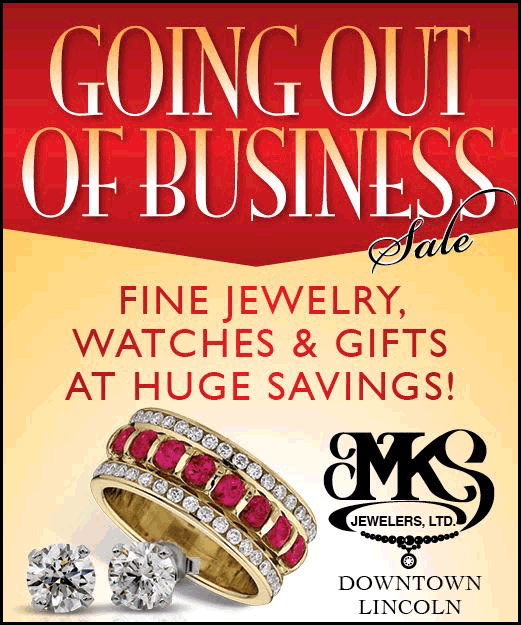|
German economy booms as
protectionist threat goes pop
 Send a link to a friend
Send a link to a friend
 [May 02, 2017]
By Michael Nienaber [May 02, 2017]
By Michael Nienaber
HAMBURG,
Germany (Reuters) - When port manager Axel Mattern looks out onto the
Elbe River from his office in Hamburg's historic warehouse district, he
can literally count the rising number of container ships leaving
Germany's biggest harbor.
There is an export boom underway, the ships tell him. China, in
particular, is "buzzing", Mattern says.
The sharp increase in demand for "Made in Germany" goods from around the
world is pushing Europe's largest economy into overdrive -- and, not
coincidently, helping dispel worries about rising protectionism under
U.S. President Donald Trump.
Some German companies are even considering expanding into the United
States, while others reckon the world is big enough for them to thrive
even if American trade borders do get tricky.
In the first two months of 2017, overall German exports rose 7 percent
on the year to 201.2 billion euros ($219.57 billion), driven by a
broad-based uptick in demand for top quality German products such as
cars and machines.
The trade boost comes on top of Germany's vibrant domestic economy which
is already supported by a robust labor market, a growing population and
record-low borrowing costs, enabled by the European Central Bank's loose
monetary policy.

Soaring private consumption, increased state spending on refugees and
higher construction drove an expansion of 1.9 percent last year, the
strongest rate in half a decade and the fastest among the Group of Seven
industrialized countries.
The economy is still doing well.
But it is the jump in trade that most bodes well for 2017.
A breakdown of trade data from the Federal Statistics Office compiled
for Reuters shows exports to the United States -- Germany's most
important single export destination after the bloc of European Union
countries -- jumped 9 percent in the first two months of the year to
17.9 billion. Those to China leapt 14 percent to 12.6 billion euros.
SELF-CONFIDENCE
The U.S. increase comes despite some of the new president's "America
First" campaigning.
Trump's protectionist rhetoric and the dispute about the benefits of
free trade are likely to rank high on the agenda of the Group of 20
summit to be held in Hamburg in July.
Concerns among managers in Europe's economic powerhouse, however, have
already eased.
"We're very relaxed about this whole debate about Trump and
protectionism," Mattern said. "If Mr Trump doesn't want to buy German
goods anymore because he thinks he can produce everything at home, we'll
just find other buyers."
Corporate Germany's self-confidence is backed by data. A survey of some
43,000 consumers in 52 countries conducted by Dalia Research and
Statista showed "Made in Germany" is viewed as the most appealing seal
of quality in the world.

Senior German government officials also sound less alarmed about U.S.
policy after meetings with U.S. counterparts in recent weeks -- a notion
echoed by ECB President Mario Draghi on Thursday.
Chancellor Angela Merkel has even fueled expectations of a future EU-U.S
trade deal, saying she was "very encouraged" talks were being looked at
after her recent trip to Washington.
[to top of second column] |

The blue fire Megacoaster of MACK Rides is pictured at the theme
park EUROPA PARK in Rust near Freiburg, Germany April 28, 2017.
REUTERS/Ralph Orlowski

German business leaders such as Anton Boerner from the BGA trade
association point out that Trump's protectionist threats, including
broad-based introduction of punitive tariffs on imports through a border
adjustment tax, have failed to translate into policy so far.
"There are no concrete measures and this means 'business as usual' for
companies -- at least for now," Boerner told Reuters.
While uncertainty remains high and is limiting overall private sector
investment, at least some companies seem to be viewing political risks
as the new normal -- and they are pushing ahead with investment.
A survey by the Ifo institute shows German industrial companies plan to
increase investment by 5 percent this year, up from 3 percent in 2016.
NEW SITES
Among them are Mittelstand companies, the largely family-owned firms
that form the backbone of German industry and make up roughly 98 percent
of German export companies.
"We plan to open at least one, probably two new production sites in the
U.S.," said Josef Minster, CEO of Schlemmer Group, an automotive
supplier specializing in cable protection systems.
The Bavarian-based firm wants to increase its market share in North
America and benefit from an expected upturn in the automobile sector
there.
Schlemmer is also preparing a takeover of a small U.S. firm which is not
yet selling its high-quality niche products abroad.
"Together with our expertise and global sales network, we expect to
benefit quickly from scaling effects," Minster said, adding that the
takeover would be one of the biggest in the history of the company,
founded in 1954.

Schlemmer traditionally aims to produce near its customers' factories to
keep the production chain short. Roller-coaster manufacturer Mack Rides,
in contrast, builds every ride in the tiny southern town of Waldkirch in
the Black Forest region before shipping them to amusement parks around
the world.
Mack Rides plans to invest in its German production site, located near
its own theme park called Europa-Park close to the French border, to
meet rising global demand.
"We're currently experiencing a sharp upturn in demand from Asia and the
Emirates, but also from Europe and the United States," said CEO
Christian von Elverfeldt.
The 237-year-old family-run firm has an export rate of 95 percent,
meaning rising protectionism and import tariffs surely would be bad for
business, the manager admits.
But Elverfeldt said customers value his company's quality and innovation
-- such as the recent development of a roller coaster ride with virtual
reality glasses.
"Even if the U.S. should increase import tariffs, which hopefully will
never happen, we'll be able to easily offset this decline in sales
through the fast growing economies in Asia," he said.
For graphic on German trade, click: http://tmsnrt.rs/2pc3007
(Editing by Jeremy Gaunt)
[© 2017 Thomson Reuters. All rights
reserved.] Copyright 2017 Reuters. All rights reserved. This material may not be published,
broadcast, rewritten or redistributed. |